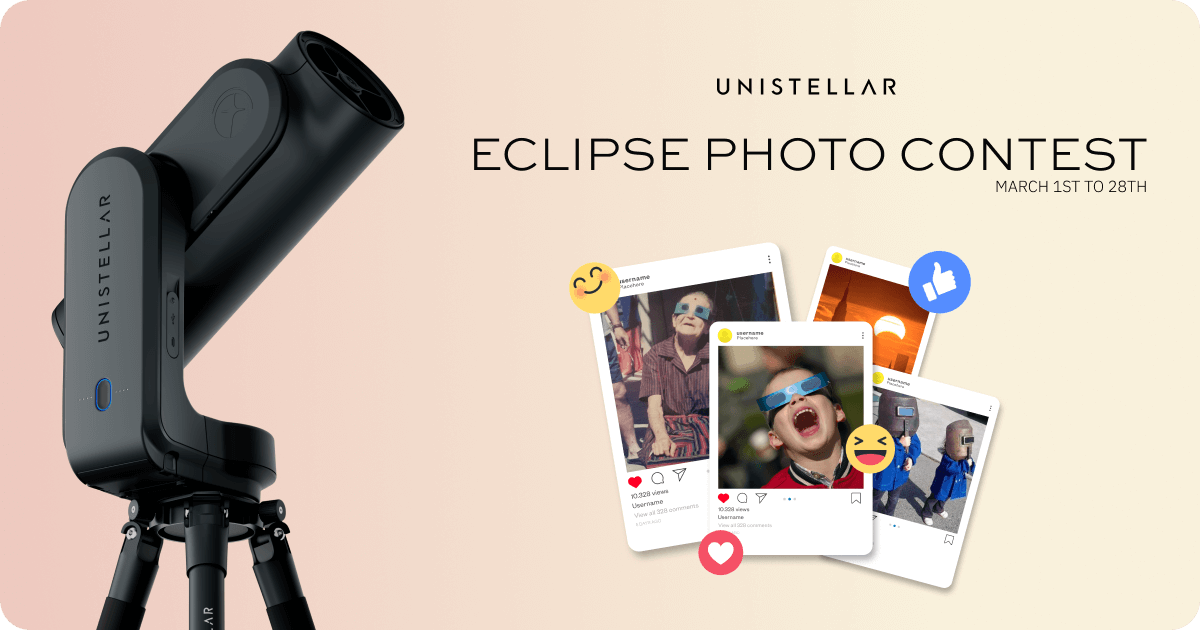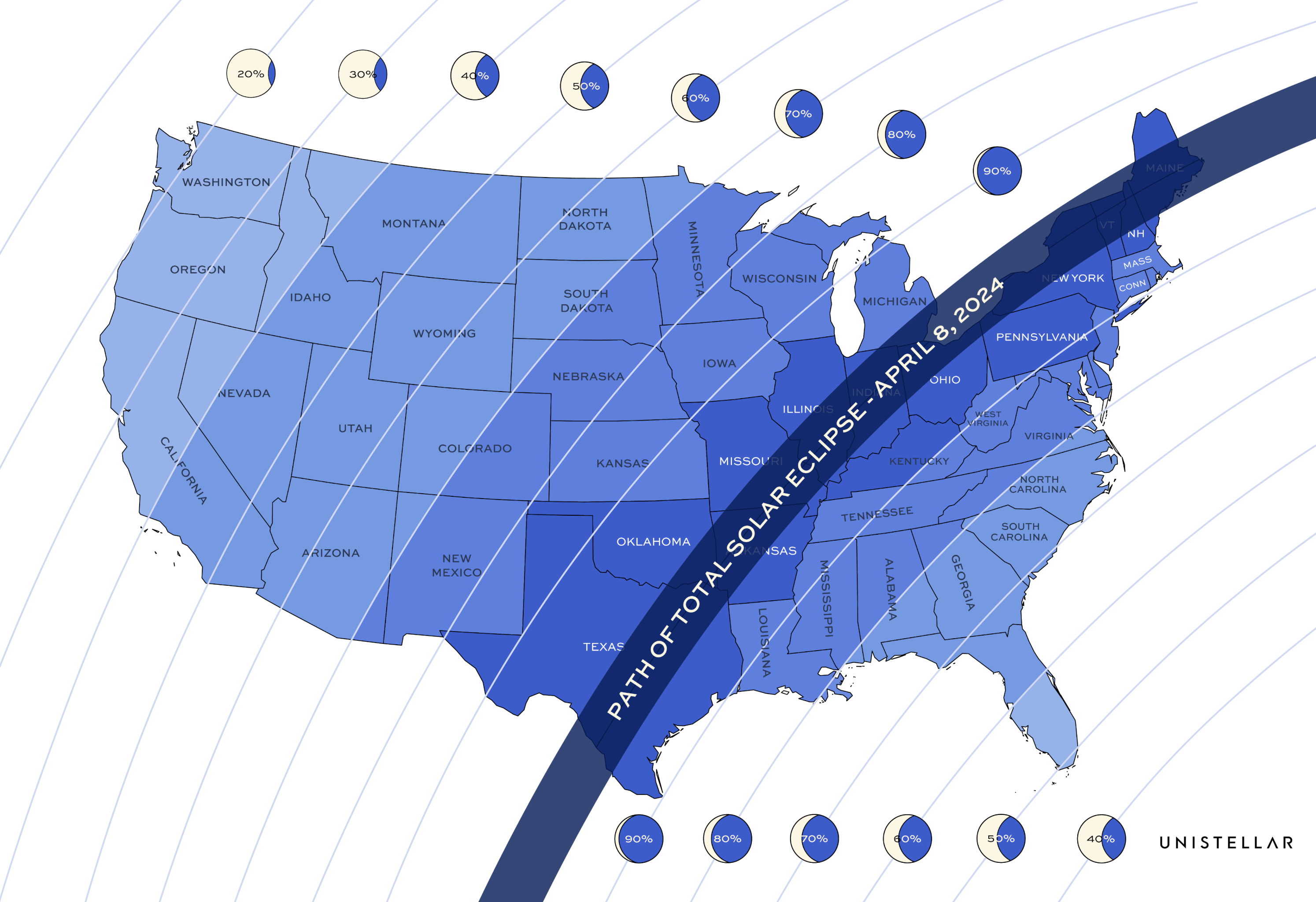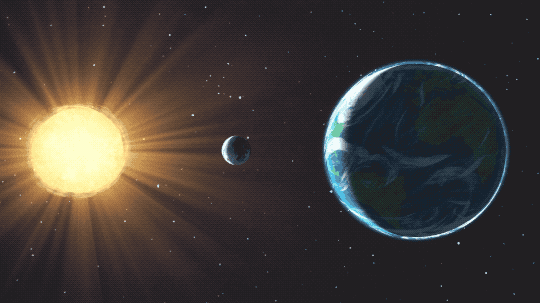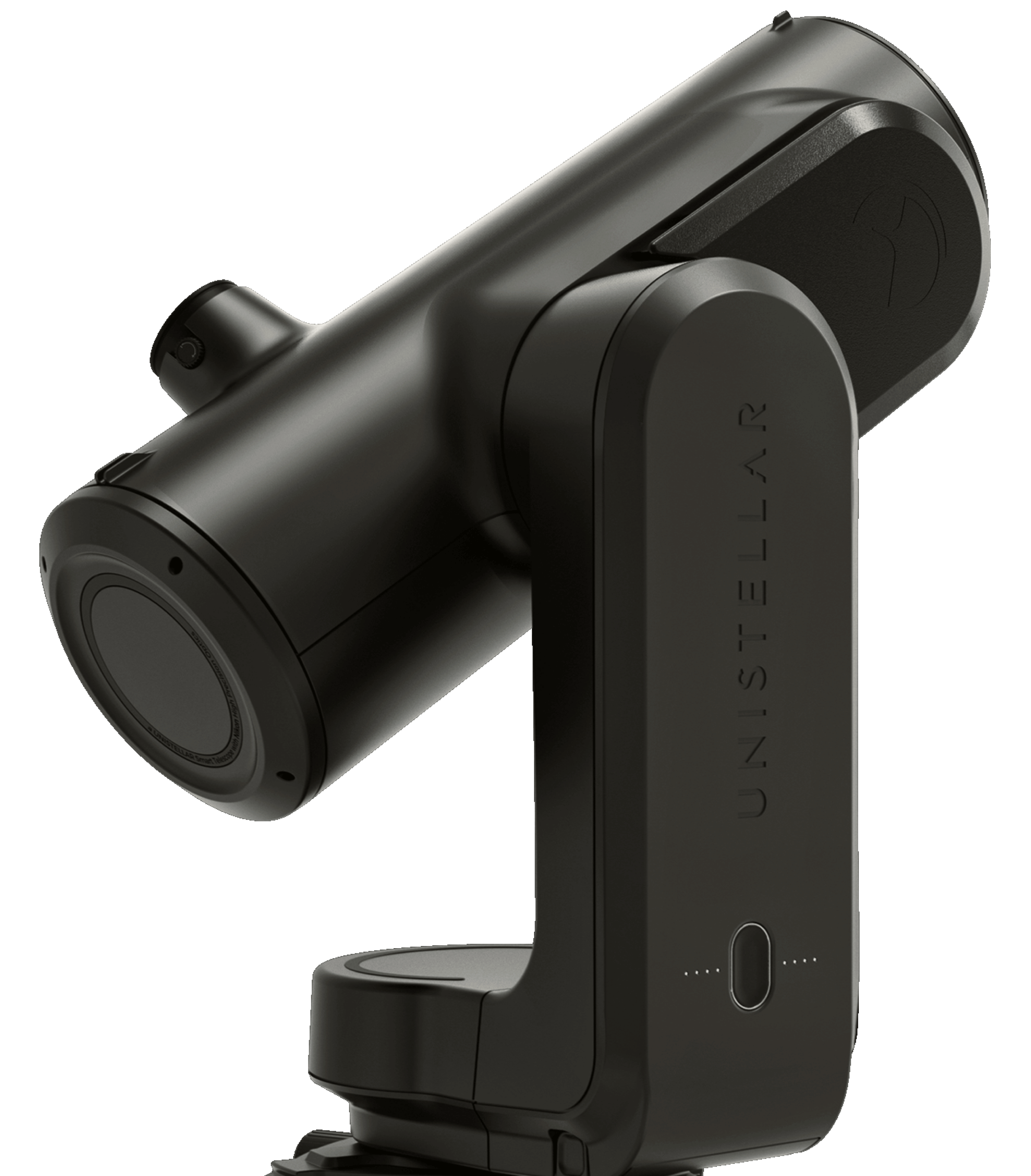APRIL 8 2024
GREAT AMERICAN ECLIPSE
Embark on the celestial journey of a lifetime as we gear up for the awe-inspiring 2024 North American Eclipse. Dive into a wealth of information, expert tips, and your chance to win the unparalleled ODYSSEY PRO telescope, perfectly timed for the grand spectacle
Moments of Awe Together
Share your most stunning eclipse moments and inspire people around you for the upcoming Eclipse. The most voted photo wins the ODYSSEY PRO telescope.

1. SUBMIT YOUR FAVORITE ECLIPSE MEMORY
Share your most unforgettable eclipse moment with us. Whether it’s a stunning photo or a heartfelt story, let your experience inspire others.
2. SHARE & GET YOUR FRIENDS TO VOTE
Spread the word about your submission. Encourage friends and family to support your entry with their votes, amplifying your chance to shine.
3. ENTER A CHANCE TO WIN AN ODYSSEY PRO
Your captivating eclipse memory could win you an ODYSSEY PRO telescope ($3,999). Immerse yourself deeper into the cosmos with this advanced tool for celestial exploration.
MAP YOUR ECLIPSE JOURNEY
Explore our map to trace the eclipse’s path across the U.S. Discover the best spots for witnessing this rare event in its full glory and plan your perfect eclipse experience.

| Location | Partial Begins | Totality Begins |
|---|---|---|
| Dallas, Texas | 12:23 p.m. CDT | 1:40 p.m. CDT |
| Idabel, Oklahoma | 12:28 p.m. CDT | 1:45 p.m. CDT |
| Little Rock, Arkansas | 12:33 p.m. CDT | 1:51 p.m. CDT |
| Poplar Bluff, Missouri | 12:39 p.m. CDT | 1:56 p.m. CDT |
| Paducah, Kentucky | 12:42 p.m. CDT | 2:00 p.m. CDT |
| Carbondale, Illinois | 12:42 p.m. CDT | 1:59 p.m. CDT |
| Evansville, Indiana | 12:45 p.m. CDT | 2:02 p.m. CDT |
| Cleveland, Ohio | 1:59 p.m. EDT | 3:13 p.m. EDT |
| Erie, Pennsylvania | 2:02 p.m. EDT | 3:16 p.m. EDT |
| Buffalo, New York | 2:04 p.m. EDT | 3:18 p.m. EDT |
| Burlington, Vermont | 2:14 p.m. EDT | 3:26 p.m. EDT |
| Lancaster, New Hampshire | 2:16 p.m. EDT | 3:27 p.m. EDT |
| Caribou, Maine | 2:22 p.m. EDT | 3:32 p.m. EDT |
The Science Behind the Magic
Delve into the fascinating science behind solar eclipses. Learn what causes this breathtaking alignment and how it has captivated human imagination throughout history.
What is an eclipse?
A Total Solar Eclipse occurs when the Moon completely covers the Sun, as viewed from Earth. This can only happen when the Moon is close enough to the Earth in its orbit to fully cover the Sun’s disk, resulting in the daytime turning into a brief period of darkness.

DID YOU KNOW?
Shadow Bands
Just before and after totality, shimmering, wavy lines of alternating light and dark can be seen on plain-colored surfaces. These “shadow bands” are caused by the Earth’s atmosphere refracting the last few rays of sunlight.
Corona Visibility
A total solar eclipse is the only time you can see the Sun’s corona (its outer atmosphere) with the naked eye. The corona appears as a pearly white crown with plasma streamers spreading outward.
Temperature Drop
During a total solar eclipse, the temperature can drop noticeably, sometimes by as much as 15 degrees Fahrenheit (8 degrees Celsius) in a matter of minutes, creating a sudden and eerie twilight chill.
Tips for an Unforgettable Experience
ECLIPSE LIVE STREAMING
Can’t view the eclipse directly? Join our live coverage from prime locations, offering you a front-row seat to totality from the comfort of your home.
DAYS UNTIL THE ECLIPSE
Day(s)
:
Hour(s)
:
Minute(s)
:
Second(s)
Elevate Your Eclipse Exploration with ODYSSEY PRO
Meet your ultimate companion for celestial exploration. Its unparalleled clarity and precision together with its robust smart automation make it the best instrument to admire an eclipse.

